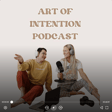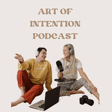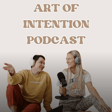
12 Steps to Being A Great Employee - Episode 61
While we love talking all things business owning and entrepreneurship over here, we also have a huge passion for perfecting your work ethic, no matter your current career. Whether you're about to be working in food service, retail, other customer service, or are about to pursue the corporate world, we wanted to create a crash course all about how to be the best employee you can be in anything you dive into. We break down the whole journey of starting a new job, from dropping off a resume to your first week, and let you in on small things that your employer is looking for that you maybe didn't know already. We encourage you to work hard and do your best every day, and to be a light in whatever career you're in right now.
Got a tip we missed? Let us know by email at artofintentionpodcsast@gmail.com or reach out to us on instagram @artofintentionpodcast
See you next week!
Xo - Beth and Ayla


